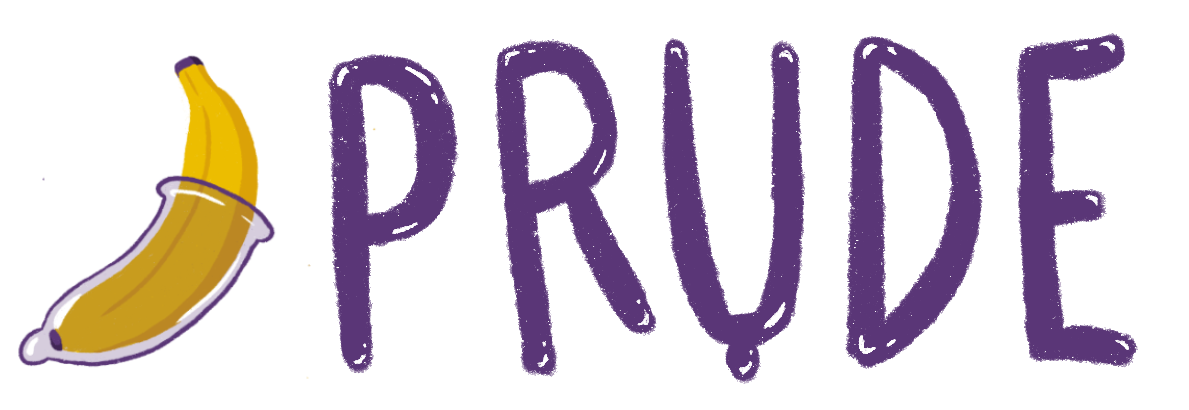Share This Article
It’s freshers’ week. You’re sat under fluorescent yellow lighting in someone’s dingy kitchen. The linoleum table is sticky with spilled Echo Falls, and the drinking games rage on.
“Never have I ever been kicked out of a club,” someone declares. One person drinks. “Never have I ever been arrested,” the next person says. No one moves. “Never have I ever thrown up on a night out,” the confessions continue.
Then you hear the words you’ve been dreading: “Never have I ever had sex.”
What do you do? Down your drink and lie, hoping no one asks for further details? Or boldly declare you’re a virgin, risking embarrassment and social ostracisation?
It’s a situation many teenagers dread. Hookup culture is so synonymous with university life, and freshers’ week in particular, that many people come to university worrying that they haven’t done it already. To put your mind at ease, I’ve never actually heard the above statement used in a game of never have I ever, but I’ll let you in on an even better secret: chances are, other people in the room haven’t had sex before either.
Turns out, having sex for the first time later in life is surprisingly common – and by later in life I don’t mean 19 or 20. A study conducted in 2018 found that one in eight millennials had sex for the first time at the age of 26, compared to one in 20 in their parents generation. With the pandemic, there have been fewer opportunities for going out and meeting people to have sex with, it’s no surprise that this has only become more common in the last two years.
So why aren’t we talking about it?
Kate Moyle, a psychosexual therapist, says society “just makes an assumption that young people have sex a lot”. That comes from the changes young people are going through – becoming adults and gaining freedom, hormonal changes, exploration – and sex is part of that.
That expectation is only strengthened by the teenage characters we see in films and TV shows, who shag 24/7. “When people sit outside of that assumption they’re assumed to be outliers,” explains Moyle, “but actually we’re not fact-checking [how common it is for young people not to have sex]”.
Charlotte is one person who had sex for the first time in her 20s. Although she tried with her boyfriend when she was 19, it didn’t work out. “In my head I thought ‘I’m ready, I want to do this’, but I’d get really shaky. I’m quite an anxious person, so anxiety would take over and my body was just saying ‘nope, this isn’t happening’.”
When Charlotte eventually had sex for the first time, she was 22. It happened with someone she “fancied the pants off” and she found, on reflection, she needed those extra three years to be ready. But she’s not embarrassed about having waited. “It doesn’t bother me anymore,” she says. “Once you’ve done it, it doesn’t actually matter when your first time was.”
And Charlotte’s right. If you haven’t had sex before, you shouldn’t worry that doing it for the first time later in life will hold you back – sexual experience is completely subjective.
In fact, as we grow up, our understanding of sex grows with us. Compared to your teenage years where, in Charlotte’s words, “people are just blundering around in the dark”, having sex for the first time later in life may actually be a far more positive experience.
“Virginity is a social construct, it’s not that we get a badge for everyone to see when we’ve had sex for the first time,” Moyle explains. “This idea of ‘good at sex’ is built into our society, but there isn’t actually a framework for what ‘good at sex’ looks like.”
“As an adult, I knew more about sex,” says Charlotte. “That meant it was way better because I at least had some knowledge of what was going on and what it was supposed to look like. It also meant I had a lot of confidence to communicate.”
Learning about sex is important even if you’re not doing it, and there’s lots of ways you can educate yourself. As Moyle explains: “There are more important ways of focusing on sex and building up sexual wellness: building a relationship with yourself, understanding your body, and learning how to communicate about sex. That will actually put you in better stead to be more comfortable and more relaxed when you want to include a partner in that.”
But the lack of openness we have in talking about sex is a big problem. It’s something Nick, 22, struggled with before he did it for the first time aged 21.
“As a man it can be quite difficult to know who to ask about that sort of thing. Even people who may present themselves as very liberal and supportive can still be judgmental,” he says.
He thinks we need more discussion around and support for people having sex for the first time in their 20s.
It can be difficult to navigate hookup culture if you haven’t had sex before. Nick explains that as a man, he feels stuck between the two representations of male sexuality in the media: the high school jock who uses women and is only interested in their own self-satisfaction, and the incel who feels entitled to female attention and blames women for their lack of it. “I’m struggling because I’m stuck between two extremes”, he says, “[that makes it] very awkward for men to admit they’d like advice and help.”
The pressure to have sex can take a big toll on many young people’s self esteem. Nick says that “society is obsessed with appearance and image”, meaning men who haven’t had sex before are often faced with a question of: “As a person, am I unattractive? And as a man, am I a failure?”
Moyle explains that often this pressure isn’t internal, but external. “A lot of the time the problem comes when people think they’re not where they ‘should’ be,” she says. “People take one thing which is ‘I haven’t had a sexual experience’ to mean so much about themselves, when it’s likely they have a lot of other things going for them.”
In the end, both Nick and Charlotte were glad they lost their virginity in their 20s. “I always thought it was going to happen after a candlelit dinner with the love of my life, and it was the complete opposite,” Nick says. “It was with someone that I liked, that I’d known for a few years, and it just sort of happened one afternoon, and I think that was absolutely the best way for me.”
Charlotte was equally relieved she waited until the moment felt right. Sometimes when people are having sex for the first time later in life, they can feel pressured to lie about their past experience out of embarrassment. But for Charlotte, because she didn’t “hook up with any random person” she wasn’t comfortable with, she didn’t feel the need to lie and say she’d had sex before, and then not know what she was doing. “My experience had a lot of communication around it and that made it feel safer,” she explains.
And if you’re still waiting to meet the right person, you’re not alone. Lois, 24, is holding out for her first time, and finds that empowering: “If you’re not in a position where you want to have sex with somebody or you just haven’t found that person, power to you, because it takes a lot to say no sometimes. For me the issue isn’t surrounding saying no, it’s just that I haven’t found someone to say yes to.”
Lois, Charlotte and Nick don’t regret waiting, but they do regret the worry it caused them. Charlotte says she was “overthinking it”, and Nick agrees that you shouldn’t rush into anything if you’re not ready.
Contrary to what we see in films and TV shows, “it’s not a mind-blowing experience”, says Nick. Many people find having sex for the first time anticlimactic (in more ways than one). “Sex isn’t going to completely change your world”, he says. “It’s better to do something later than to do something you end up regretting.”
He’s right. If you haven’t had sex yet, you don’t need to worry. As Lois says: “Things will happen when they happen. Who’s to say they need to happen quickly or right now?”
Enjoyed this article? Read more here: Being your partner’s first
Illustration by Itasca Quady



